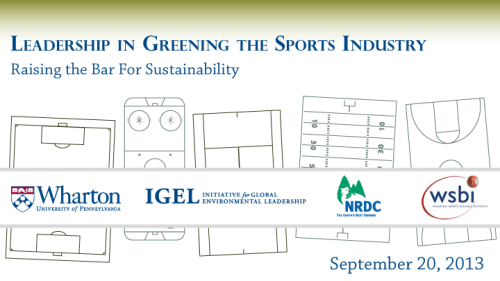by Sharon Muli*
Water covers 70.9% of the Earth’s surface. However, only 3% of the Earth’s water is freshwater, and 68.7% of this freshwater is in glaciers, 30% is ground water, and 0.3% is surface water. Humans depend on freshwater for a wide variety of uses, and this finite amount of water must be properly managed and allocated.
The chart below shows the uses of freshwater in the U.S. The chart highlights the nexus between water, food, energy –the focus of the upcoming Wharton IGEL Conference on March 20-21, 2013. The two leading uses of freshwater withdrawals in the U.S. are thermoelectric power and irrigation, and any significant change in water use in these sectors will likely have an impact on the other categories.

How do droughts affect our country? As part of a group project for the Wharton course Risk Analysis and Environmental Management, Penn students Sharon Muli, Brent Ginsberg, Zenia Zelechiwsky, and Yaowen Ma are gathering data on how individuals perceive the risk of drought. The focus of this project is to investigate the likelihood of more droughts occurring in the United States in the future and to shed light on their associated impacts.
Please click here to take a survey to help us with our investigation. The survey takes approximately 2-3 minutes to complete. Thank you for your participation.
*Sharon Muli is enrolled in Penn’s Master of Environmental Studies program with a concentration in Environmental Policy. She has a background in Biology, is particularly interested in water issues and corporate sustainability, and currently works as a Product Sustainability Co-op at Johnson & Johnson.


 A close-up of the first mosaic made of recycled tiles and mirrors by the Penn Enactus Green Initiative team. Courtesy of Penn Enactus
A close-up of the first mosaic made of recycled tiles and mirrors by the Penn Enactus Green Initiative team. Courtesy of Penn Enactus


